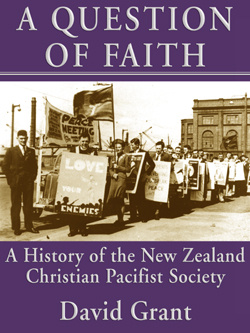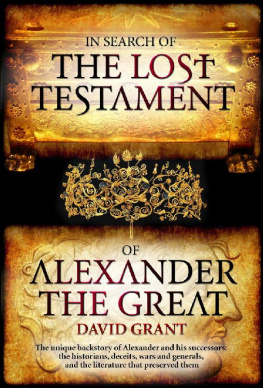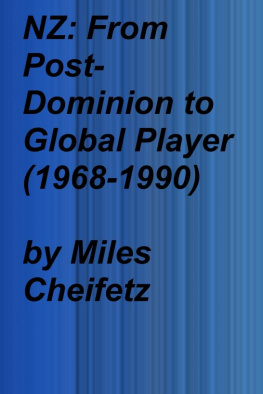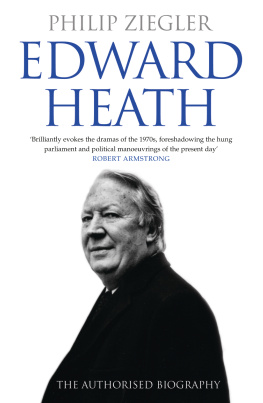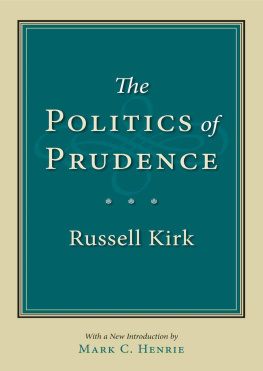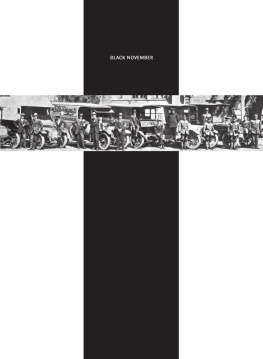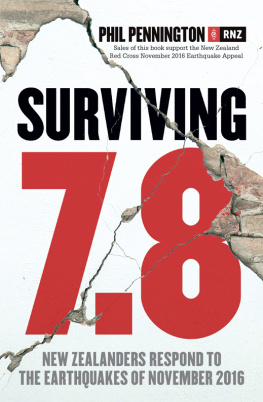When Norman Kirk became Prime Minister of New Zealand in 1972, the country was conservative, conformist and culturally insecure. He drew New Zealand closer to Asia and the Pacific, as countrys post-colonial ties to Britain slowly loosened. Charismatic, commanding, courageous and much loved, when he passed away suddenly, shockingly, aged just 51, the outpouring of grief matched New Zealanders reaction to the death of Michael Joseph Savage in 1940.
This book examines Kirks political leadership; his humanitarianism, his successes, especially his stunning performances on the international stage, but also his later difficulties as his health worsened and New Zealands economy was rocked by oil shocks. This outstanding biography takes the full measure of the remarkable New Zealander who was this countrys last working-class Prime Minister.
AS NORMAN KIRKS BODY lay in state near the steps of Parliament on the day after his death on 31 August 1974, one of the mourning kaumatua wailed, The mighty totara has fallen. These brief words resonated with others around him and were picked up by a hungry media keen to reflect what many New Zealanders felt about this big, commanding and loved leader dead at just 51 years and seven months in their hours of grief. More than 30,000 people of all ages and occupations braved rain to file past the casket over two long days, and again in Christchurch, in a commemoration that matched only that for Michael Joseph Savage in the power of its emotion. Both men died in office, both men were humanitarians, their lives and works in large part reflecting the aspirations of the poor, the sick, the elderly, the disabled and the mentally ill. Yet Kirk was more than that. He worked hard to expand the Labour Party and the broader movement away from its cloth-cap heritage and clich-ridden class concerns to encompass a much broader electorate for it to become, in his words, the natural party of New Zealand.
Norman Eric Kirk was Prime Minister of New Zealand between 25 November 1972 and 31 August 1974. Born in 1923 into a Waimate working-class family, he endured a childhood of poverty as his father struggled to provide for the family, spending close to five years on debilitating relief work in the 1930s Depression when Norman was a boy moving into adolescence. Yet Kirk thrived despite the forbidding environment. He read voraciously and speedily, and he learnt to swim, hunt and fish with assurance and skill sometimes with his father even before he got his first job at the age of 12, cleaning out roof gutterings for a Christchurch painting firm. The bedrock of his later humanitarianism, which formed the essence of his political philosophy, evolved from studying the New Testament in the Salvation Army church of his parents, although he would set aside adherence to formalised religion as an adult.
From Christchurch he moved through a succession of manual jobs, upskilling as he went, continuing to read extensively, honing political arguments, becoming involved early as a trade union official in Auckland and as a member of successive Labour Representation Committees, before booming into local body politics. Not given to fanfares or flourishes of glib political showmanship, Kirk abhorred pretentiousness, cant, favouritism and perceived privilege. At 30 he was elected mayor of working-class Kaiapoi, the youngest-ever mayor in the country. He was charismatic and energetic, with a fast-learning ability to get things done in the town. His step up to a wider political stage was both inevitable and rapid. Within four short years he was a member of parliament, working diligently in the Lyttelton electorate from 1957 to turn a marginal seat into a relatively safe one, sometimes in defiance of national trends. Never was he more loved than on the Chatham Islands, where he turned a neglected backwater into a proud and thriving community.
Kirk became leader of the Labour Party in 1965, succeeding Arnold Nordmeyer in one of the countrys first coups dtat. Although he moved quickly to stamp a new direction on an expanding party, he retained an inbuilt social conservatism that saw him react against the more radical and self-indulgent aspects of the counter-culture that began to swirl around him through the late 1960s and early 1970s; in particular he opposed moves to liberalise the laws prohibiting abortion and homosexuality. Yet he did play conduit to one aspect of this societal revolution when he led the way for self-sufficient ohu government-sponsored communes to be established on marginal blocks of land to allow groups of young people to pursue alternative dreams.
When Kirk became Prime Minister of New Zealand in 1972, the country was a conservative, conformist, economically fragile, politically dependent, culturally insecure and ill-defined outpost of the Commonwealth. Its post-colonial verities were starting to creak under the weight of liberal attitudes which the young had begun to espouse. Yet apron strings were still firmly tied to the mother country, Great Britain, from which New Zealand had inherited most of its people and systems of education and health, and to whom the country still owed much of its wealth. It was still dependent on the British market for a good percentage of its primary produce. Under Kirks direction, and hastened by Britains decision to join the European Economic Community just before he came to power, New Zealand moved away from an obsequious attitude towards Britain and forged ahead to develop a multi-faceted, multicultural national identity, developing closer ties to a raft of new nations.
Honesty, integrity, diligence and compassion were hallmarks of Kirks character. He was a natural leader, who garnered huge respect among his colleagues, among the party at large, and among many in the political Opposition and in the fourth estate. His humanitarianism was universal. Thousands of people wrote in condolence books after his death; Thank you for making us proud to be New Zealanders was a common refrain. Kirk aimed hard for all New Zealanders to live inclusively. Early in 1974 when his government changed Waitangi Day to New Zealand Day, the new nomenclature was simply an acceptance, in his view, that the country was ready to move into a broader nationhood.
He was a big man, who believed in big government running a controlled, centrally focused economy and taking a hand in almost everything. The Kirk government was involved directly in developing new trade possibilities and realities, often in bilateral government- to-government deals, in India, China, Japan, Malaysia, Indonesia, Singapore and countries in the South Pacific. Kirk believed this to be in the countrys best economic interests. He was New Zealands last working-class Prime Minister and poorer New Zealanders, many of whom had been marginalised in previous administrations, now had a new champion.
The essence of this book is an examination of Kirks political leadership. It charts his successes, as a local body politician, a member of parliament, and Leader of the Opposition, and, as Prime Minister, his achievements during 1973 including his stunning performances on the international stage. There were difficulties in 1974 when, bedevilled by constant sickness and unwilling to modify the costly promises he had made to the country in his treasured Red Book (Labours 1972 election manifesto), he found it difficult to make economic adjustments that would slow the economys nosedive in the wake, primarily, of the international oil shocks which first hit New Zealand late in 1973.


